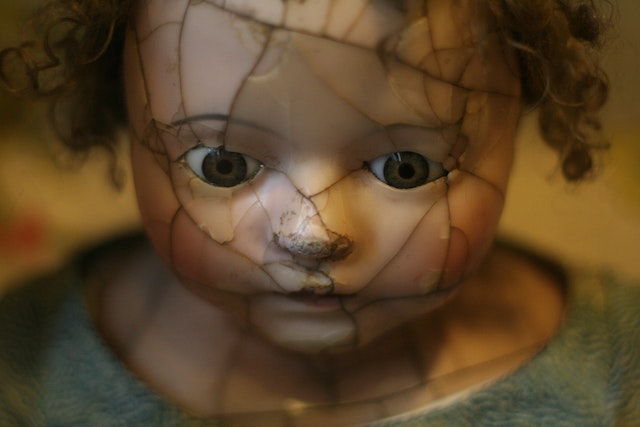Dr Bob Leckridge describes how homeopathic metals can help children with behavioural problems
When children start school they are thrown into quite another world from that of the family. Not only do they need to form multiple relationships of different kinds with classmates and teachers but there are many new pressures for them to deal with – managing to achieve certain standards of mental and physical performance, pleasing the teachers, conforming to regulations and rules and so on. In addition to that not only will the physical environment of the school be unfamiliar to them but the social and cultural environment will be completely new, and often quite challenging, too. So it’s no surprise that problems start to appear in children who up till now had perhaps been quite healthy and well-adjusted. This is because in life we are continually subjected to what has been termed “stress”. By stress we really mean anything which challenges a person, a challenge to which the person has to react. We all adapt to everyday changes, but adaptation does not always run smoothly! Under the pressure to react and change, we either grow or we get sick. It’s important to understand this otherwise “stress” gets a completely negative press. When we are provoked in positive ways we are stimulated to grow, to stretch beyond our existing limitations and to mature. Too much provocation of course produces harm and there can be a fine line between the stress which encourages development and that which precipitates illness. A well-chosen remedy, prescribed correctly by a healthcare professional who has learned homeopathy, can tip the balance to stop a stress being harmful, but more than this, it can actually turn it into a stimulus to growth and development. A good homeopathic prescription will not just relieve sickness, it will also stimulate the child to grow and mature.
The homeopathic approach really gives us the chance to take different, and hopefully better perspectives on people. We can see that “symptoms” are just the manifestation of a failure to cope with whatever has challenged or injured a person, and we can also come to understand why a particular person develops a specific pattern of illness. From this point of view, the materia medica of homeopathic remedies is like a book of wisdom which throws light on dark or confusing times. The majority of remedies we use are prepared from plants but the next largest group are prepared from minerals. In particular there are a number of common metals which, as homeopathic remedies, are invaluable in treating children’s behavioural problems and illnesses.
Alumina
The child who needs homeopathic aluminium is a confused child, who lashes out because of violent impulsiveness. These outbursts really surprise people because normally the Alumina child is quiet and gentle. In fact they might seem extremely biddable because actually they have had their natural character suppressed usually by a very dominant parent who has repeatedly told the child that whatever their wishes are they are not going to get what they want. This erodes their self-confidence and they can be very scared of sharp things and of the sight of blood. However, there remains a strong tenacity, almost obstinacy, in their character. This is most evident in the characteristic they have of not being hurried. It’s impossible to hurry them. This is not because they want to go slowly though, it is because they just cannot seem to go as fast as even they themselves would want to. Inside they feel hurried but they can’t make their actions go fast enough so they end up making lots of mistakes. This shows in class especially with difficulties in reading and writing practice. Their inner hurried feeling also leads to physical restlessness, with fidgety hands and feet, and even in some cases to sleepwalking. You might find them anxiously wandering from room to room at night rubbing their tightly closed eyes.
Argentum nitricum
This remedy is made from silver nitrate and is most commonly used to treat anticipatory anxiety. There are many possible remedies for anticipatory anxiety and Argentum nitricum will only work well when the features match and the circumstances are right. Key indications are the physical symptoms of shaky hands and legs accompanied by a shaky tummy. These children will describe the typical butterflies-in-the-tummy feeling and might have to run back and forward to the loo with diarrhoea. They are hot children who easily feel overheated and when they get anxious their sweet tooth becomes quite excessive. They crave sugar and sweet things but when they eat too much of them it makes them feel worse and upsets their tummy more. The most important thing for these children is their performance. These are children who can be great performers, whether in music, drama or sport, but they tend to be so bound up in the importance of performing well that each event becomes quite an ordeal for them. If they don’t do well they really feel quite lost! By lost, I mean as if they are all alone in the world. They are over-excitable and impulsive children which can mean they are great fun, or that they are hard to contain.
Aurum
Fortunately, gold is not a commonly indicated remedy for children, but sadly, in this day and age of increasing psychological pressures on children, depression, even severe depression which drives a child to attempt suicide, has become more common.
The child who needs homeopathic gold is often a very industrious, hardworking and ambitious child. They might have an over-developed sense of duty and responsibility and can easily feel guilty that they are not doing what they are supposed to be doing. They do have a strong sense of their own uniqueness but this can lead to feelings of being alone and cut off from others. They are hugely over-sensitive to contradiction which can result in explosive outbursts of anger and violence. Their tendency to over-sensitivity extends to almost all environmental stimuli – noise, music, smells and touch, all of which they can find overwhelming. When they cannot manage to progress, in particular when they are contradicted or frustrated, they are likely to see everything as hopeless and black, a catastrophy. This is when they tumble into deep depression.
Cuprum
Homeopathic copper is often indicated for children who have difficult behavioural problems. They tend to be fiercely independent children, never asking for help. As you might imagine this makes them rather headstrong, or even obstinate. They have great abilities to be focussed and hard-working, really sticking at tasks and always playing by the rules. However in situations where there are confrontations either with other children in the class or with a teacher who antagonises them they tend to blow up both verbally and physically, lashing out with a sarcastic tongue, mimicking people and playing tricks on them and even lashing out destructively, biting, or spitting. They are also breath-holders when angry and can turn spectacularly blue in the face during these temper tantrums.
Ferrum
The Ferrum child has a will of iron. This can result in them being both bossy and intolerant to contradiction. They have a tendency to be physically robust or a bit overweight and their bossiness means they always want to be in charge. These are often very self-confident children, the leaders in the class, not the followers. They are typically hard workers who will really stick at things but they suffer from a certain lack of flexibility or adaptability. They can be rather oversensitive, being easily provoked. When challenged they will either stand their ground or fight. A common response to a challenging situation is either to flee or fight. In the case of Ferrum they will always fight. These kids don’t run away from things. However, if there is too much chaos around, and particularly if other children are being especially noisy, the Ferrum child will try to find solitude away from the others. These children are often very anxious about family members, worrying that relatives they actually feel responsible for might become seriously ill or die. The focus for this might be a younger sibling or, in cases where one or other of the parents is suffering from a chronic, incapacitating illness to the extent that there is a degree of role reversal and the child has to be a carer, the focus is on the parent.
Platina
Platinum is a very expensive metal and the indications for its use homeopathically are centred on this sense of being special. Actually it is more than being special, these children are likely to feel both superior to others and cut off from others. They are difficult to make contact with and might even have been diagnosed as autistic, or suffering from Asperger’s Syndrome. One little girl I successfully treated with Platina was known by her family as “Little Princess” and she ruled the household from her bedroom at the top of the house. Despite her slight physical appearance, her strength of will really dominated the whole family and she would tell everyone else in the house what to wear each day. This strange sense of superiority seen in these children can even lead, as it did in this particular child’s case, to a refusal to play with any children who are not smaller than them. The Platina child is easily bored and will shut herself in her room saying everything is boring and uninteresting. This is a deep kind of dissatisfaction with things. They need to have routines and to feel that they are able to impose their will to the extent that they can control their surroundings. One focus for this might be eating. Lots of children are fussy or picky eaters, but the child who needs Platina takes this to quite another level. They may not only refuse to eat all but particular foods but they often have a strange insistence on the position of food on the plate. For example it is common for them to insist that no two kinds of food on a plate touch each other.
Plumbum
The child who responds to homeopathic lead is equally insistent on routines and order. But their need for order is more compulsive than in the child who needs Platina. In fact, they will describe feeling compelled to sort things out, get things done, and get them done in just the “right” way (by which they mean their usual way). This can make them rather rigid and they are children who particularly don’t like change or having to do anything new. The other aspect of the child who needs Plumbum is a kind of contrariness. They actually love to do what they’ve been forbidden to do and if they are then permitted to do it they quickly find they’ve lost interest. This means they are really susceptible to parents’ tried and tested management technique of “reverse psychology”. In addition to this, these children often present with a combination of restlessness, poor memory function and mood swings. This combination can, as you might imagine, result in considerable learning difficulties. A physical problem which these children often have is colicky abdominal pains which make them double up and are relieved by applying firm pressure and local heat.
Zincum
Homeopathic zinc is most commonly indicated for the constantly restless child. These are the greatest of fidgets. I can always spot them in the waiting room (or even on the train!) because their feet just never stop moving. It’s like watching perpetual motion! These are often awkward kids, again of an Asperger’s Syndrome type, who find it hard to make connections with the other children, often have a dominating father and are harbouring a lot of frustration and anger. As is almost always the case with suppressed anger, it tends to come bursting out with great vehemence and violence which, of course, makes it increasing difficult for them to fit in socially. They are also over-sensitive children, particularly to noise and to voices. In most of the children who are very restless we also see an instability of mood and the Zincum child is no exception. In fact their mood swings can be quite marked, oscillating between feeling down and feeling cheerful, anger and shyness, and anxiety and contentment.






